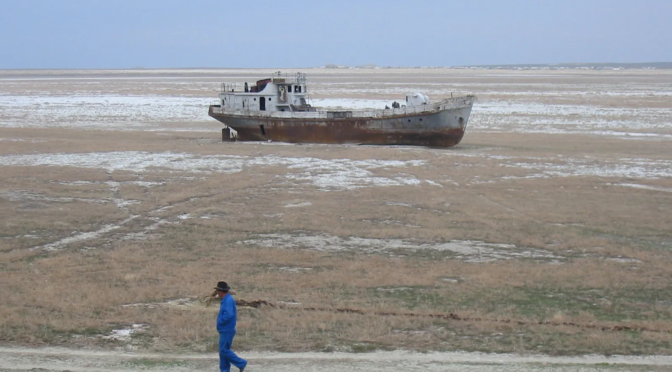This session will bring together two presentations:
Astrid Greve KRISTENSEN (PhD candidate Sorbonne University – CEFRES)
E(co)schatological Entrypoints: The Abject and the Anthropocene in Bianca Bellová’s novel Jezero [The Lake]
Matylda SZEWCZYK (University of Warsaw)
On Darkness and Light: Images of Nuclear Power and Reproduction
Location: CEFRES Library and online
Dates: Friday 21 October 2022, 16:30–18:30
Language: English
Contact: cefres[@]cefres.cz
Abstracts
Part 1: E(co)schatological Entrypoints: The Abject and the Anthropocene in Bianca Bellová’s novel Jezero [The Lake] – Astrid Greve KRISTENSEN
The 2016 Czech coming-of-age novel Jezero [The Lake] by Bianca Bellová conjoins the drying up of a life-giving lake with an obscene amount of bodily fluids bursting from its teenage protagonist. Together, this ecocritical subject combined and a rather literal interpretation of the abject, form a basis for my interpretation of this orphan narrative.
Part 2: On Darkness and Light: Images of Nuclear Power and Reproduction – Matylda SZEWCZYK
The seemingly counterintuitive juxtaposition of nuclear energy images – power plants, atomic tests, nuclear apocalypses – with visions of reproduction (biological fertilization, parenthood, symbolical figures of parents and children) returns in the history of culture with puzzling frequency. It brings along the questions about the social attitude towards technology, science and the fundamental “facts of life” and has already been a subject of academic discussions, from the feminist analysis of Evelyn Fox Keller to historical reconstructions of Spencer R. Weart. The contemporary and historical functioning of these motives in visual culture will create the background for my presentation, concentrating on the images of nuclear apocalypse and parenthood/reproduction in the novels Sakhalin Island by Eduard Verkin (2018) and Brightness by Maja Wolny (2019).
See the complete program of the SAMSON Nature(s) & Norms Seminar

Featured image : P. Christopher Staecker.

